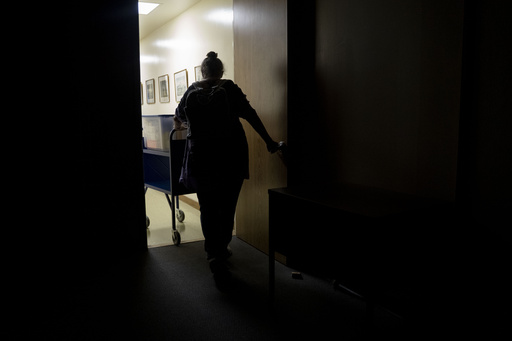BOISE, Idaho — A clandestine religious group, to which Lisa Webb’s family belonged, has garnered significant scrutiny due to growing international allegations of sexual abuse. Within this sect, frequently referred to as the “Two by Twos,” details regarding its members, leadership, and finances have been meticulously concealed. Followers congregate in private homes rather than formal churches, and the organization’s official name remains elusive. For decades, however, the identities of sexual predators within the group were kept secret, until recent public accusations spurred an investigation by the FBI.
Victims allege that leaders of the sect often protected child-abusing ministers by pressuring them to forgive their abusers and failing to comply with legal reporting requirements. Instead of addressing accusations properly, the group reportedly relocated abusers to new communities, where they could exploit new victims. Although leaders have made public statements condemning the abuse, many have refrained from providing further details in response to inquiries.
For Webb, who experienced sexual abuse from a minister in her youth, the recent attention to the situation offers a newfound sense of community and solidarity. “There are so many who are frustrated and disheartened,” Webb expressed, noting the comfort she finds in shared experiences among survivors. Various survivors from over 30 countries have documented claims against more than 900 abusers via a dedicated website, hotline, and social media pages. Recent news reports and a documentary have highlighted the issue, uncovering a dark narrative surrounding the sect’s ministers and the leaders who failed to act.
Despite some abusers facing prison time, the sect has largely evaded legal action, aided by a complex decentralized structure and obscured financial practices, combined with state laws that restrict the timeframe for criminal prosecution.
Founded in 1897 by William Irvine in Ireland, this group—also referred to by its members as “The Way” or “The Truth”—advocates a return to early Christian practices, sending volunteer preachers, known as workers, to live among congregants. Although the sect’s membership peaked several decades ago with estimates of up to a few million, current figures are believed to be between 75,000 and 85,000 members globally.
Legal experts note the sect does not possess substantial assets because of its ideology, which discourages the accumulation of worldly possessions. While this allows followers to offer aid to ministers, it also raises concerns about unsupervised access to potential victims.
As a child, Webb was abused by a preacher staying at her home in Michigan when she was only 11 years old. A man named Peter Mousseau, who was later convicted of abuse, managed to manipulate the trust of her family. Webb recounted that the absence of any protective barriers enabled the abuse, cultivating an environment devoid of suspicion.
Another account comes from Sheri Autrey, who recounted her own painful experience of abuse by a worker residing in her home in California at the tender age of 14. After confiding in her mother years later, the overseer simply instructed the abuser to apologize rather than warn others. Although Autrey’s family pursued legal action, she was unprepared for the trauma of recounting her experience in a courtroom.
The chilling accounts of broader abuse within the sect continue. For instance, Americo Quispe was sent to Texas despite previous allegations in Peru, where he was ultimately convicted for molestation but escaped charges in the U.S. Similarly, Ruben Mata repeatedly assaulted boys and was only convicted in a separate case years later.
Internal communications have surfaced revealing a culture of silence regarding abuse within the sect. In correspondence from overseers, leaders recommended processing disclosures without reporting them to authorities, instead suggesting counseling to fulfill legal requirements. Victims were often warned against speaking out, reinforcing the belief that such abuses were merely sins to be personally reconciled rather than crimes needing legal address.
Jared Snyder, who spent 20 years as a minister, expressed the prevailing culture of downplaying wrongdoing amongst members and the pressure to maintain an appearance of mercy. He noted, “The less you know, the better off you are,” exemplifying the systemic issue of secrecy that characterizes the group, one which discourages transparency.
Amidst this disturbing backdrop, the sect came under further scrutiny following the death of Dean Bruer, a regional overseer whose actions left multiple underage victims. Evidence suggests Bruer engaged in predatory behavior, and only after rigorous pressure from survivors did authorities gain access to critical information, revealing manipulation of evidence to conceal the breadth of Bruer’s actions.
The resulting investigation by the FBI, launched in part due to renewed activism from abuse survivors, represents a pivotal moment for the group. In response to mounting pressure, some leaders have acknowledged the need for reform. Nevertheless, resistance remains regarding the implementation of child protection policies, with some advocating for adherence only to spiritual doctrine.
As the movement to expose and address these abuses grows, survivors are determined to raise awareness and prevent further victimization within a structure that has historically suppressed the voices of its members.
